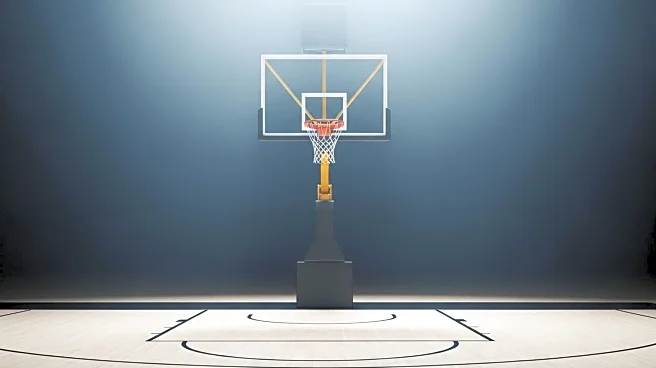What's Happening?
Angel Reese, a prominent player in the WNBA, has stated that she does not intend to pursue ownership of a WNBA franchise after her playing career. During her 'Unapologetically Angel' podcast, Reese responded to a fan question about potential future ownership by simply stating, 'I would not.' At 23 years old, Reese is currently focused on her playing career, having completed her second season with the Chicago Sky. Despite the team's struggles, with a 23-61 record since she was drafted, Reese has excelled individually. She finished second in Rookie of the Year voting in 2024 and has been an All-Star in both of her seasons. Her performance includes averages of 14.1 points, 12.9 rebounds, 2.7 assists, and 1.4 steals per game, with a shooting percentage of 42.1%. Reese's future with the Sky is uncertain as she has publicly criticized the team's roster decisions, leading to trade speculation.
Why It's Important?
Reese's decision not to pursue franchise ownership highlights a broader trend among athletes who are increasingly vocal about their career priorities and post-career plans. Her focus on her current playing career rather than future ownership reflects a shift in how athletes view their roles within professional sports. This decision could influence other players considering similar paths, emphasizing the importance of immediate career development over long-term business ventures. Additionally, Reese's public criticism of her team's management could prompt changes within the Chicago Sky organization, potentially affecting team dynamics and future roster decisions. Her stance also underscores the ongoing dialogue about player empowerment and influence within professional sports leagues.
What's Next?
As Reese continues her career, her performance and public statements will likely keep her in the spotlight. The Chicago Sky may need to address her concerns about roster building to retain her talent and avoid further trade speculation. Reese's influence could also extend beyond her team, potentially impacting league-wide discussions on player management and team ownership. Her decision not to pursue ownership may encourage other players to focus on their playing careers, potentially altering the landscape of post-career opportunities for athletes.









